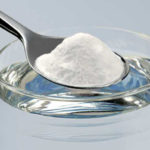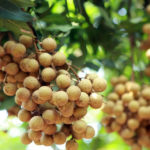Winter melon is often abundant in winter, rich in vitamin C, B6 good for health, prevent cardiovascular disease and cancer. This is a cheap, easy-to-process tuber that many people choose.
Winter melon is a good food with high nutritional value. This tuber is rich in fiber, good for digestion, preventing constipation, and preventing intestinal diseases, especially cancer.
In 100g of winter melon, there are 62mg of vitamin C, higher than oranges and lemons, almost enough for daily needs.
In addition, winter melon also contains good minerals such as potassium, magnesium, copper, or vitamin B6 which helps support the immune system, protein metabolism, and red blood cell regeneration.
According to research, phytochemicals in winter melon have antioxidant effects, anti-aging, and value in preventing cancer, diabetes, and lipid disorders.
The calorie content of winter melon is low. In 100g, there are only 24-25 calories, so it is recommended for obese patients who want to lose weight.

Anti-cancer
Winter melon contains nutrients that prevent the development of cancer cells and improve the function of the liver and lungs. Additionally, winter melon is rich in sulfur which helps support the production of indole-3-carbinol and isothiocyanates. Therefore, it significantly reduces the risk of breast cancer.
Reduce the risk of diabetes and obesity
Thanks to its high water and fiber content, winter melon helps create a longer-lasting fullness sensation. Therefore, winter melon is considered one of the effective and safe foods for weight loss.
Obesity is one of the causes of type 2 diabetes. However, with a healthy diet including vegetables like winter melon, it will significantly improve these two diseases.

Strengthen bones
We all know that calcium is a mineral that contributes to the hardness and strength of bones. In addition, magnesium increases bone density, helps strengthen bones, and reduces the risk of fractures or osteoporosis. Winter melon contains high levels of calcium and magnesium, which helps make bones stronger and healthier.
Improve vision
Dry eyes are a significant problem in today’s technological era. Vitamin A or beta-carotene helps moisturize the cornea and protect the eyes from ulcers, haziness, or loss of vision. Furthermore, beta-carotene also helps enhance night vision.
In 100g of winter melon, there are 22µg of beta-carotene (beta-carotene will be converted into vitamin A) acting as an antioxidant compound in the eye area.

Improve blood pressure and cardiovascular health
A bowl of winter melon can provide more potassium than a medium-sized banana, beneficial for blood pressure control. The function of potassium is similar to a vasodilator, reducing the tension of blood vessels and arteries.
According to research, winter melon has a higher content of anthocyanins (an antioxidant) especially in purple winter melon. A diet supplemented with anthocyanins can reduce the risk of chest pain and arteriosclerosis.



































